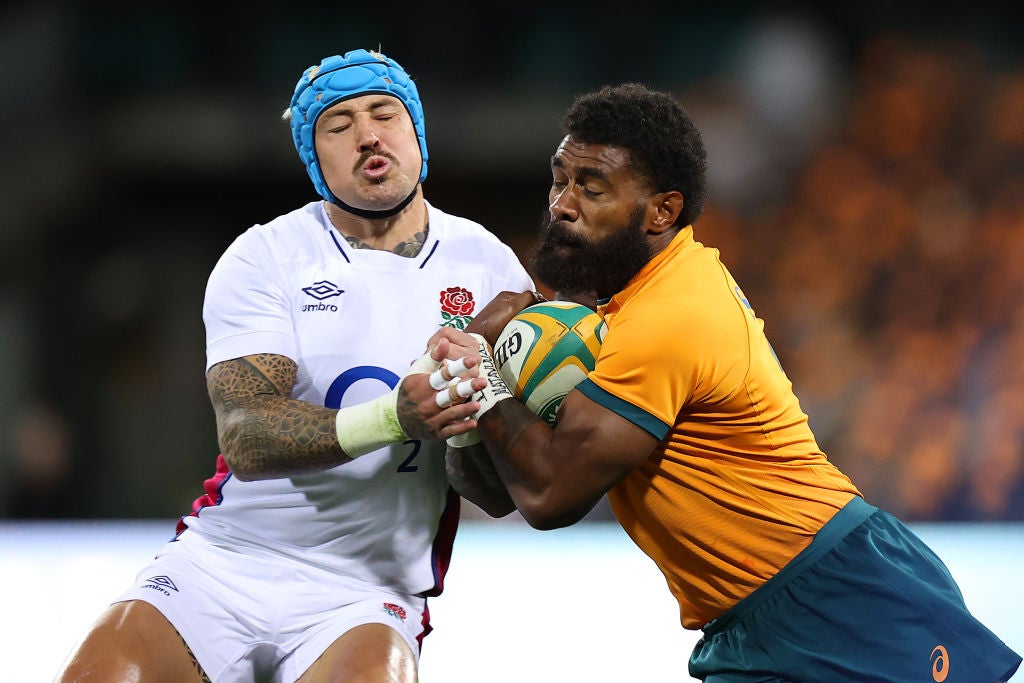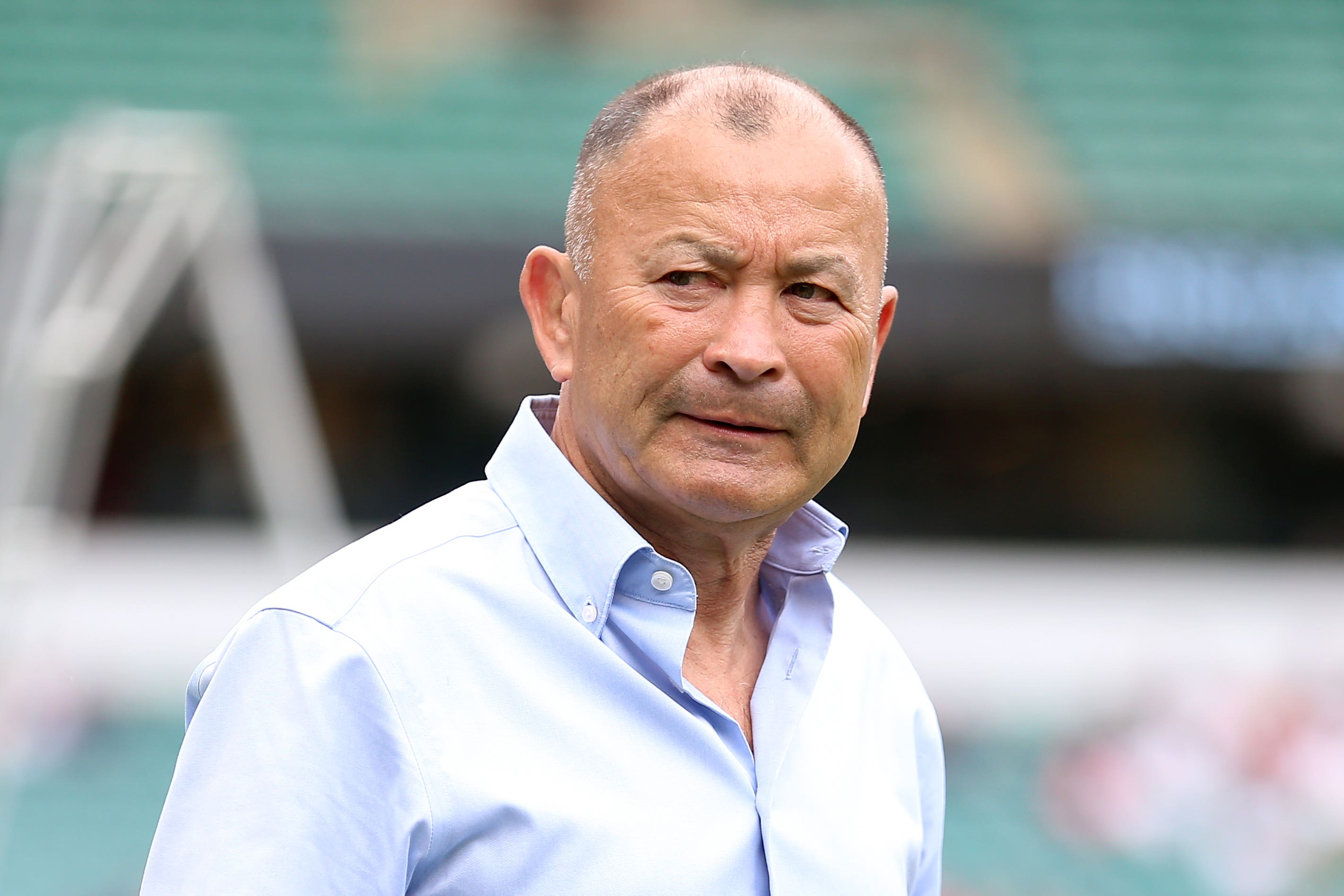Autumn internationals take centre stage with elite end of rugby firmly in sport’s spotlight
Not all headlines have been entirely positive of late but the finest nations can put on a show to propel the game higher

The autumn arrives and the winds of change again swirl through rugby union. These have been dark, dispiriting months, with the broken boughs of the English game stripped bare by the fall of Wasps and Worcester and the sport’s relationship with brain injuries never far from the headlines.
And so, with less than a year until the 2023 World Cup, an enticing, critical international campaign begins with rugby receiving the back page, top-of-bulletin cut-through it craves – but with very little focus on the sport itself. At a time where the three leading competitions in Europe manage to consistently captivate, the disconnect between the on-field thrill and a sport in a state of dysfunction is the problem over which the powers that be agonise.
“It’s been one of the most fascinating seasons: the game is fantastic, high-scoring, unpredictable, great fans, great stadiums,” said Ben Morel, chief executive of the Six Nations, ahead of the Autumn Nations Series his organisation oversees. “The fan experience and great spectacle is at an all-time high, so it’s a bit paradoxical.”
They say it takes a crisis in rugby to get anything done; these, then, should be productive times. There are encouraging noises from New Zealand, where many of the most influential figures in the sport have gathered to watch the women’s World Cup and attempt to at last thrash out a suitable global calendar. While these are echoes of unsuccessful conversations past, publicly there is a commitment to evolution and collaboration, a setting aside of self-interest and recognition that there is a need for innovation to fend off potentially existential threats.
It is perhaps unfortunate that the final weeks of the international swing will collide with the Fifa World Cup, the bright lights of the biggest show in town muscling in at the theatre next door as rugby seeks expansion of its own auditorium. Yet those at the top of the sport are sure they have an attractive product if it can be marketed well.
“We need to celebrate our heroes of the game more,” continued Morel. “You also need to make sure that your game is accessible and easy to understand. There is no simple answer, but you need to roll up your sleeves and look at all angles.”
How far rugby’s untapped potential extends is a matter of debate, but there appears, at least, to have been a shift in thinking in pursuit of growth. England and Scotland will wear player names on the back of their shirts ahead of a likely wider expansion, while match officials have been urged to prioritise “speed, safety and space”.
A partnership with Sage to develop a smart ball able to capture real-time data and analytics aims to further enrich the viewer experience, with plans for future technological evolution within a sport that can at times seem in thrall to the Luddites.
There is broad agreement that the top class of men’s international rugby has never been more tightly clustered. A low-key raising of the curtain between Australia and Scotland at Murrayfield last weekend was not, perhaps, the most alluring appetiser but this is a hectic November, intensified further by hastily arranged fixtures between clubs, countries and invitational sides as all seeking to bolster the coffers.
Entirely coherent the next five weeks might not be, but spectators and viewers will not be short of choice.
Ireland and France head the international pack and could push away further from their rivals with unbeaten campaigns, but maintaining consistency through to next year’s World Cup will be a challenge. New Zealand arrive as Rugby Championship winners but seemingly held in lower esteem than ever. A tough tour might provide a vital, resuscitative shock – or deepen the apparent problems.

With Eddie Jones’ preferred midfield of Marcus Smith, Owen Farrell and Manu Tuilagi all fit and ready to go, England are striving for identity as they begin competition in the final year of the Australian’s tenure. A meeting with the All Blacks on 19 November is a fixture that always excites and will serve as a barometer.
South Africa’s identity is more certain but there is a sense that their toolbox requires continued diversification, or at least a stint at the whetstone. For many reasons, not least a five-year gap between meetings, the Springboks’ trip to Dublin is the pick of the first full weekend slate.
Australia, Wales, Argentina and Scotland all have the raw materials to put together an encouraging month, but all four sides are still striving for consistency. Japan’s continued evolution fascinates, while Italy, Georgia, the Pacific Island nations and others know this is a crucial time to state their case as the longer-term international landscape is sketched. The future is uncertain but, for now, an action-packed, unpredictable autumn should compel.
Join our commenting forum
Join thought-provoking conversations, follow other Independent readers and see their replies
Comments
Bookmark popover
Removed from bookmarks